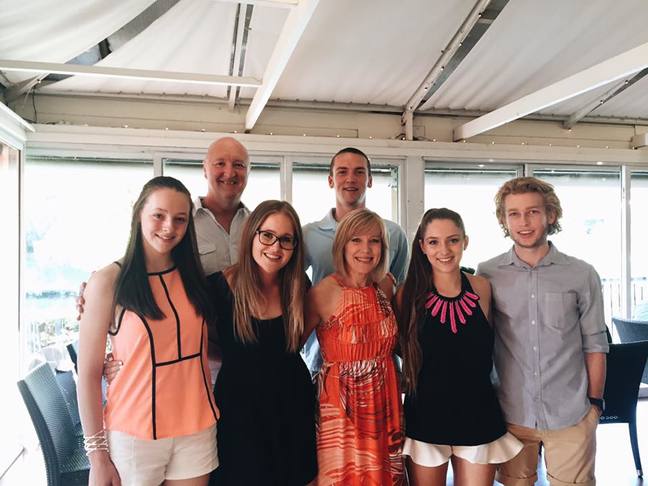
During the summer of 2014/15 I discovered Athletics and I wrote about my roller-coaster journey from a taste of success in the 100m and 200m, to potentially never running again. Certainly, if I’d listened to the first and second piece of advice from the experts, I would never have run again. But this dream was a burning desire, and with significant support and encouragement from my wonderful family and friends, I decided to have a red-hot crack at building my body back to allow me to compete in the World Masters Athletics in November 2016.
If you have a dream that sits deep in your heart, no matter what that dream is, you can achieve it if you single-mindedly set your mind to it and map out your journey.
During my 9 months training for the Worlds, I had to tap into every Positive Psychology tool in my armoury. It pays to practice this stuff in the good times and moderately challenging times, so when you’re being really mentally challenged, you have something to guide you forward.
Here’s the steps I took, and the tools I used to reach the Worlds – which can be equally applied to any goal:
Get the right people around you
Firstly I asked for the support of my husband and teenage children to help out around home to allow me the time I needed to commit to my training regime. They were nothing short of amazing. I also engaged an elite performance coach to ensure my strength training was as good as it could be, I found an incredible sprint coach, and I already had the best physio and chiro who were happy to work collaboratively with my two coaches. This team of people were the foundations from which I grew over the 9 months, without them, I doubt I could have made it.
What people do you need to engage to assist your goal achievement?
Write your goals and commitments
I wrote out my goal, and I made sure it contained the emotive reasons for why I wanted to achieve this. Why? Because when times get challenging, re-reading the goal in isolation isn’t enough, you need to remember the heart reason why you want it. Here’s my goal that I wrote in February 2016:
It is 1st November 2016 and I feel so proud and amazing. I ran a personal best time in the 100m and 200m and now I have made the final 9 to contest for a medal for my country and I feel excited.
For me, it was the chance to run for my country and do it proud that kept me working hard, so that part needed to be in my written goals. When we were training in the depths of winter, it was freezing cold and bucketing with rain, the track was soaking wet, my feet were numb with cold – it was those times I needed to be very clear that missing training was not an option if I am representing my country.
I also wrote down the number of ice-baths I had to have before I raced and I put a countdown on the wall in the bathroom that I would cross off, one by one. The ice baths were nasty! But they worked, so after returning home from training in the freezing cold and rain, I would get myself into an ice bath for 10 minutes. The first time I cried, with my wonderful husband holding my hand to support me. I got stronger at getting in, I never liked them, but I certainly respected them for how much they assisted the recovery for my worked legs. The countdown helped to remind me that they aren’t forever.
Have you written your goal? Does it include your emotive reasons?
Use visualisations
Each night as I went to sleep I would visualise myself racing really well. For visualisations to be effective, you must fully immerse yourself and all your senses into it. I would picture the track, imagine the sounds around, the spectators noise and the competitors. I would see myself feeling calm, determined and strong. I imagined kneeling down at the blocks, placing in one foot against the block, then the other, getting my hands up to the line and waiting in the crouch position for the race caller to start us. “On your marks” I could hear him say…..”Set”…..my bottom comes up……”bang” goes that gun and I would imagine myself powering out of those blocks. Visualistions are equally as helpful to bring to life whatever it is you’re pursuing – it’s not just for sports.
What will you visualise yourself doing and being?
Eat and sleep well
I made sure my body was fuelled with only the most helpful foods I could nourish it with. Not a single drop of alcohol for 6 months, no refined sugars – only fresh fruit, loads of vegetables and meat…..with one date per day as my treat. When you give your body the right fuel, it can give you the best in return. I felt amazing. I also needed plenty of sleep for my body to have time to repair, refresh and rejuvenate. Each night I would get 8 – 9 hours of good sleep. Again, it doesn’t matter if your goal is a physical one or not, the benefits of eating well and sleeping well still reflect in your ability to think smarter and have less sickness.
Is your diet boosting your brain or bogging it down?
Nurture your mind
Although I was competing physically, I understood the importance of giving my brain some time-out too. Each day I do a mindfulness meditation which keeps my thinking fresh, and my health in tip top condition. There are so many health benefits of daily mindfulness mediation that it should be a part of every person’s day.
Have you tried mindfulness meditation? It takes just 10 minutes a day. Here’s a good starting App called Smiling Mind.
Be alert for negative self-talk
So I actually made it to the Worlds. It was a heck of journey, one punctuated with tears, frustration and further injuries. There were so many times where I doubted myself along the way. Each time I strained another muscle, I would question if I could even do this. The biggest challenge was yet to come; the day I ran out on the track to compete in my first 100m heat at the Worlds. As I looked around at the other competitors from around the world who looked incredibly fit and muscular, the unhelpful voice in my head went like this, “What the heck was I thinking? I’m not good enough to be competing against the best in the world. Why on earth did I think I could compete on the world stage? These guys are the real-deal, they’ve been running for years, I’m just a pathetic novice.” SERIOUSLY! This is what I started saying to myself just before I had to race. Not very helpful. But I grabbed that very quickly as I recognised that none of those words were helpful or even correct. I quickly reminded myself that I’ve put in the all the work I possibly could. I’d trained 6 times a week, eaten only great foods, done all the strength work at the gym, sprint work on the track, I deserve to be here.
Then I switched my focus to tap into my top character strength which is gratitude. I thought how grateful I am that my body allows me to race. How grateful I am to be running against people from all over the world. How grateful I am for all the support that everyone has given to me. And do you know what? Very quickly those negative thoughts disappeared and the feelings totally shifted to that of excitement. If you’re not alert for that negative voice, it can quickly drag you down a spiral which can be hard to pull out of if you drop too far down. Don’t allow your fears to control you, know your strengths and leverage those to shine.
What are your strengths and talents? Be very clear about those and lean into them in the challenging times.
The result
The 100m races were run first. I got through the first two heats to make the semi-final. Unfortunately, I didn’t run near my best in the semi-final and missed out on making the final 9. I was so disappointed. But I still had the 200m race, this was my last chance. Again, I made it through the first two heats to the semi-final. This was my moment of truth. If I didn’t make the final I wouldn’t have achieved my goals. I started to feel an overwhelming amount of pressure to perform, I had no more chances. The night before the semi-final I hardly slept – I was so anxious about making the final 9 I had trained so long and hard for. I could feel the tension rising and my heart rate was elevated. Then I realised that this level of desperate desire was not healthy nor helpful. So I decided to change my thinking to focus on enjoying every moment of this race. I focused on what a privilege it was to meet all these lovely people from all over the world, and to how much I just love sprinting. I focused on all the joys and suspended any thoughts about the imperative to win. The result was that I ran a huge personal best time in that race to secure a place in the final 9. I was beyond ecstatic. This was my dream come true. That was my gold medal equivalent. I had no chance of medalling in the final race because the top three runners were crazy fast, so I just planned to enjoy the finals race because I’d reached my goal of making a final. I ran another PB in the final to finish 7th in the world. In that moment, every ice bath, every kale leaf, every muscle ache, every moment that I couldn’t be with my family….was all worth it. It’s the most proud and satisfied I’ve ever felt in my life.
But it didn’t end there. I flew home and celebrated by eating chocolate, drinking champagne and hugging lots of people who had helped me. A few days later I get a phone call, it’s the Head of the Australian team, she informs me that I’ve been selected to run in the 4 X 100m relay! No way!!! Back I fly to squeeze in some intense training with my team, getting the baton change just right. This was all a new experience for me, running in a relay. Fair to say that we go into this race as underdogs. We had 4 solid runners but not one superstar. But nobody counted on this wonderful bunch of women deeply believing that we can do it by nailing our baton changes and all running PBs….and that’s exactly what we did to come home with a Gold Medal for Australia! PROUDEST. MOMENT. EVER!
What a journey, what a roller-coaster of emotions, what a battle to keep believing. But I have no doubt that it was being able to tap into my armoury of Positive Psychology tools that got me a final in the 200m and a gold medal in the relay. Too cool.
Summary of the tools for making your dreams come true:
- Get the right team of people around you
- Write your goals
- Use visualisations
- Eat and sleep well
- Nurture your mind
- Be alert for negative self-talk
I’m just an ordinary person who got great clarity of my goal, my why and my how, and then did it. You can too with whatever your goal is if you put those steps in place. Good luck.












 RSS Feed
RSS Feed